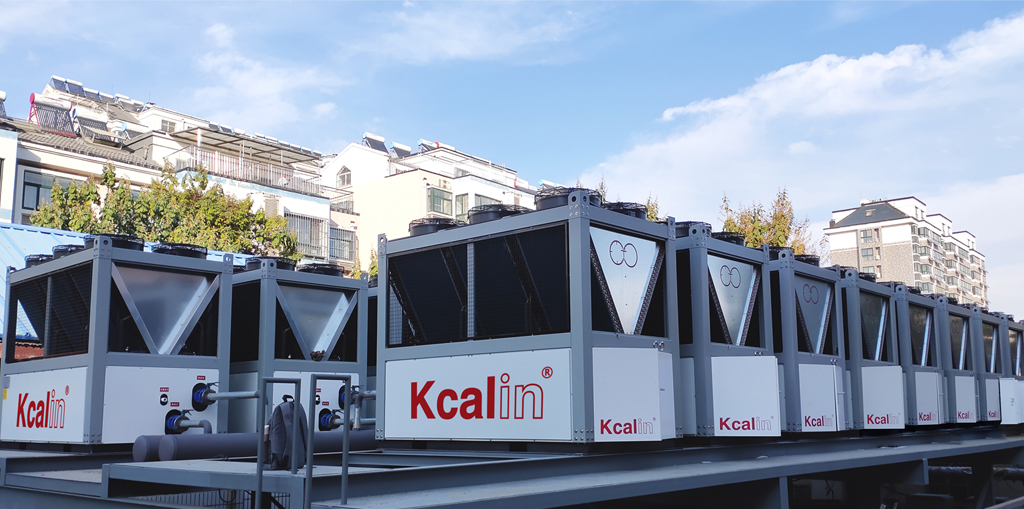In Shengquan Community, Weifang City, Shandong Province, a renovation of the air source heat pump heating system not only brings a more comfortable living environment for homeowners, but also effectively controls operating costs.
Overview of Thermal Operation Project in Shengquan Community
Location: Weifang City, Shandong Province
Building area: 86000 square meters
Heating area: approximately 66000 square meters
Heating form: underfloor heating
Heat load: 32w/㎡
According to the actual survey and insulation situation, the heat load of Shengquan Community is 66000 ㎡ x 32w/㎡=2112kW. The original heating system used a gas boiler, with an operating cost of 31.3 yuan/(square meter · heating season) (natural gas price of 3.2 yuan/m) ³)。 After renovation, the operating cost of the air source heat pump heating system has been reduced to 16.1 yuan/(square meter · heating season) (electricity price 0.58 yuan/KWh). By comparison, it can be seen that the annual operating costs of the renovated system have decreased by 15.2 yuan/(square meter · heating season), saving 48.4% of operating costs.
Energy saving and environmental protection effects

CO2 emissions reduction: Based on the 2018 average carbon emission coefficient of 0.592 kg CO2/kWh, the renovated system has reduced CO2 emissions by 17.3% compared to the original system.
Air pollutant emissions: NOx emissions have decreased by 56.4%: the on-site use of the renovated heat pump heating system resulted in zero air pollutant emissions; PM2.5 emissions decreased by 9.5%: The renovated system also significantly reduced PM2.5 emissions.
As an efficient and energy-saving heating system, air source heat pumps have obvious advantages in operating costs as can be seen from the above cases. Taking Shengquan Community as an example, the renovated air source heat pump system not only reduces energy consumption costs, but also reduces maintenance and operation monitoring costs. Below is an analysis of the operating costs of air source heat pumps:
Energy consumption cost: The renovated air source heat pump system uses electricity, and the operating cost is 16.1 yuan/(square meter · heating season). The original system used gas and the operating cost was 31.3 yuan/(square meter · heating season). From the perspective of energy consumption costs, the renovated system is significantly more energy-efficient, saving 15.2 yuan/(square meter · heating season) per year.
Maintenance costs: Air source heat pump systems generally have lower maintenance costs compared to traditional gas boilers. The system operates stably, with a low failure rate and relatively low maintenance costs.
Operation monitoring cost: The operation monitoring of air source heat pump systems can generally be achieved through intelligent control systems, with a one-time investment of a certain cost. However, in the long run, it can improve the system's operating efficiency and reduce operating costs.
Equipment update and renovation costs: In the long-term operation of air source heat pump systems, the cost of equipment update and renovation is relatively low. Generally speaking, new devices are more intelligent and efficient, continuously improving the energy efficiency of the system.
Labor cost: Compared to traditional gas boilers, air source heat pump systems require lower operating and maintenance requirements, resulting in relatively lower labor costs.
The air source heat pump system, as an efficient and energy-saving heating method, has shown significant advantages in the actual case of Shengquan Community. In addition to reducing energy consumption and operating costs, it also reduces CO2 emissions and atmospheric pollutant emissions, making contributions to environmental protection. For thermal operation projects, air source heat pump systems are not only a tool for controlling operating costs, but also an important step towards energy conservation, emission reduction, and sustainable development.







Comment